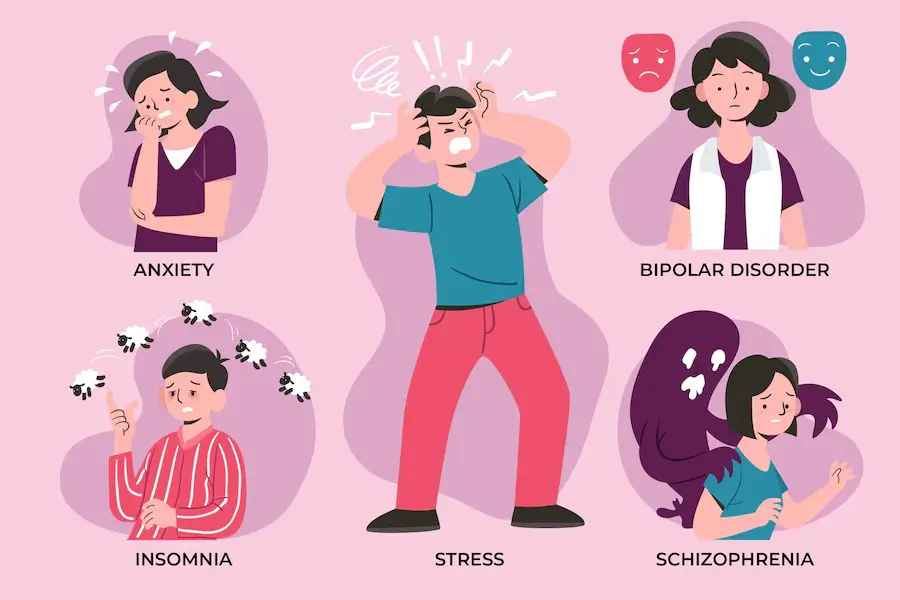
The post is developed in partnership with BetterHelp.
It’s encouraging to see more coverage of body positivity in the media these days.
Bad body image can nevertheless have an impact on our lives, despite the fact that we see an increase in these positive images in the media.
Body dysmorphic disorder (BDD) may be a possible cause of this compulsion or preoccupation (BDD) and is frequently associated with anorexia and bulimia. When it comes to body dysmorphia, learning how to deal with it means that you’ll be able to realize what this disorder actually is, how it can affect your life, and how you can deal with it to begin healing.
What is Body Dysmorphia?
Body flaws or problems that are not visible or appear minor to others are the focus of body dysmorphic disorder, according to the DSM.
Body dysmorphic disorder affects around one in 50 people, and it affects both men and women equally. Similar to OCD, people with body dysmorphia often undertake repetitive actions like “checking” their bodies, either in the mirror or with their hands. Intense poking, picking, or squeezing is common. Body dysmorphic individuals generally focus on the defective aspects of their bodies for extended periods of time.
BDD sufferers may also experience gender dysphoria. Though they are sometimes misunderstood, dysphoria and dysmorphia are distinct disorders.
Symptoms of body dysmorphia include:
- A very strong belief that you have a physical flaw
- Spending a lot of time thinking about that perceived flaw (despite it largely being seen as minor or nonexistent to others)
- Not interacting with other people
- Doing the same thing over and over again in order to conceal or repair a perceived flaw
- Trying to get almost-constant reassurance from other people.
- Thinking that people are making fun of you because of your flaw
- Behaving like a perfectionist
- Checking the mirror over and over again
- Getting medical cosmetic procedures, which usually don’t make you happy
Make Sure You Don’t Isolate Yourself
Body dysmorphia makes people feel bad about their bodies, so it’s not surprising that people with this disorder want to stay alone. One of the worst things that could happen to someone with mental illness is being lonely. Loneliness makes it more likely that you will make a quick, irrational decision that could hurt you. Learn how to get help from your friends and family instead of feeling like you have to hide.
Find a Nutritionist
Physical and mental health are both very important. What you eat can have a big effect on both of these things. People who have body dysmorphic disorder are more likely to get an eating disorder, which can cause a lot of problems with their health, so they should be careful.
The best way to avoid the long-term effects of this disorder is to eat foods that make you feel your best. The best way to figure out what foods work best for your body is to talk to a nutritionist. These experts can help you make a healthy meal plan that fits your needs. As long as you don’t make any major changes to your eating or diet, this tip will help you.
Keep Your Mind At Peace With Meditation
Meditation can help you deal with stress, anxiety, or negative thoughts that make you think your body isn’t the way it is. Body dysmorphic disorder, like many other mental illnesses, can disrupt your mental well-being and make you think dark thoughts. If you do it often, meditation can help you have more patience, be more positive, and see things from a different angle.
Write Down How You Feel Every Day
People who journal every day can write down their thoughts and feelings without acting on them, which is a good way to do this. Acting on your feelings of anxiety or distress is usually not a good idea. Keeping a daily journal, on the other hand, allows you to let go of your stress without taking any risks.
Turn To The Experts
All of these ways to deal with body dysmorphia are good, but getting professional help is the most important one. Treatment for this disorder can help you learn how to fight negative thoughts and incorporate healthy habits into your daily life. You can learn more about the benefits of therapy for BDD at https://www.betterhelp.com/advice/body-dysmorphic-disorder/.